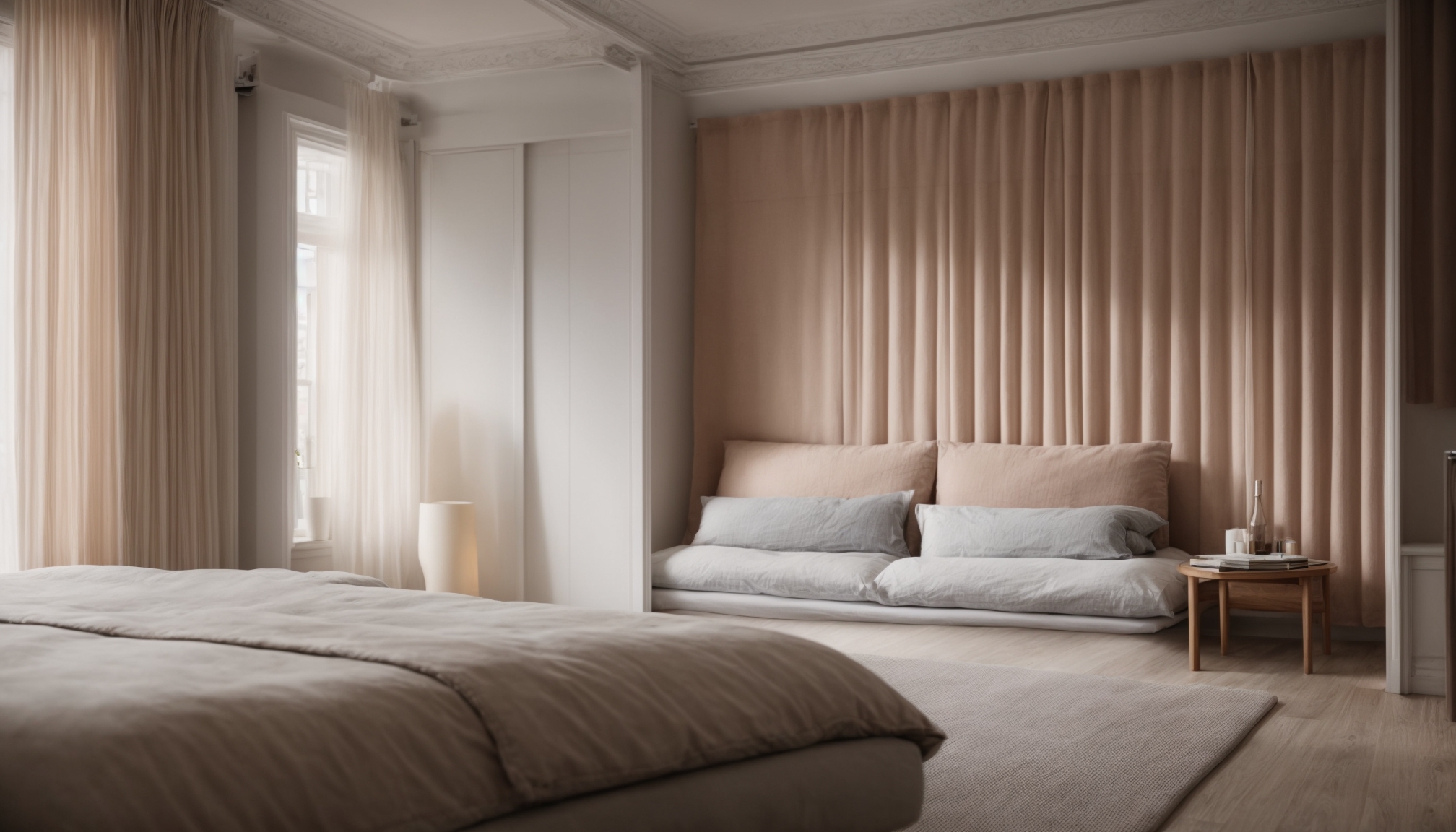Immediate actions to reduce noise in your UK apartment
Dealing with UK apartment noise can be frustrating, but simple steps can bring quick relief. Understanding soundproofing basics starts with identifying common noise sources: neighbors’ footsteps, thin walls, street traffic, or noisy building elements like heating pipes.
For renters, who often can’t make permanent changes, inexpensive quick fixes work well. Installing door sweeps or draft excluders blocks sound coming under doors. Rearranging furniture, such as placing bookshelves against shared walls, creates extra barriers that dampen noise. These small, non-invasive adjustments respect tenancy agreements yet improve your peace.
Additional reading : How can you design a multi-functional space in a UK apartment?
Soft furnishings are your allies in soundproofing basics. Thick curtains significantly reduce external sounds, especially if drawn at night. Rugs increase floor insulation, cutting down on echo and footsteps from above. Adding wall hangings or fabric panels absorbs noise bouncing between walls. Together, these elements absorb and diffuse sound waves, reducing the overall noise levels inside your apartment.
By quickly applying these practical and affordable measures, you can gain quieter, more comfortable living space in your UK apartment. These steps represent the core DIY soundproofing tactics every renter should try first before considering more complex solutions.
Additional reading : What are the best ways to enhance curb appeal in UK homes?
Soundproofing doors, windows, and walls
Small gaps around doors and windows are common sources of unwanted noise in UK apartments. Effective soundproofing doors begins with sealing these gaps using weatherstripping or acoustic seals. These materials create airtight barriers, significantly reducing the infiltration of outdoor noise. When it comes to soundproofing windows, secondary glazing is a practical choice. By adding an extra layer of glass, it creates insulating air pockets that muffle sound waves. Alternatively, acoustic curtains provide a flexible solution, absorbing sound before it reaches the interior space.
Addressing noise through soundproofing walls can further enhance quietness inside apartments. Mass loaded vinyl (MLV), a dense yet flexible material, can be applied either temporarily or permanently to walls to block noise transmission effectively. Acoustic panels, designed to absorb sound, offer an aesthetic and functional solution that improves both noise reduction and room acoustics.
Combined, these methods contribute to UK apartment noise reduction, creating a more peaceful environment. Each option has different installation requirements and cost implications, allowing residents to tailor their approach depending on the level of noise and budget.
Solutions for floors and ceilings
When it comes to soundproofing floors in UK apartments, using thick rugs or interlocking mats is a practical and cost-effective method to reduce impact noise. These materials absorb vibrations caused by footsteps or moving furniture, significantly minimizing sound transmission to neighbors below.
For a more permanent solution, consider underlay options beneath carpets or laminate flooring. Specialized underlays are designed to dampen both airborne and impact noise. These can be particularly effective when paired with soft flooring, creating a double layer of sound insulation.
Soundproofing ceilings tackles noise from upstairs neighbors, a common challenge in flats. Installing soundproofing ceiling tiles or acoustic panels can substantially decrease the noise level. These panels act as a barrier, absorbing and dispersing sound waves before they penetrate through to your living space.
Using a combination of these methods—thick rugs, quality underlays, and ceiling panels—offers a comprehensive approach to noise reduction. They suit a variety of apartment setups in the UK, balancing effectiveness with ease of installation. This multi-layer strategy empowers residents to enjoy quieter homes, ensuring better comfort without major renovations.
Choosing between DIY and professional soundproofing
When deciding on DIY soundproofing or opting for professional soundproofing UK services, cost is often the first consideration. DIY products typically present a more cost-effective soundproofing option upfront. Materials like acoustic panels, weatherstripping, or draft stoppers are affordable and accessible. However, the total cost can rise if mistakes require additional fixes or if more advanced tools are necessary.
Assess your skill level and tools before starting a DIY project. While simple fixes suit many renters, complex soundproofing—such as installing mass-loaded vinyl or resilient channels—often demands expertise to ensure effectiveness and avoid damaging walls or fixtures. DIY efforts might also fall short of reducing noise as much as expected without professional consultation.
When is it wise to call a soundproofing specialist? If noise issues stem from structural concerns or require precise installation, professionals provide tailored solutions. They can evaluate room acoustics and recommend the best materials and methods, ensuring compliance with building regulations—especially in the UK. While professional soundproofing might cost more initially, it offers reliability and long-term benefits that can outweigh DIY limitations.
Legal and rental considerations for UK apartments
When it comes to soundproofing legalities in the UK, tenants must carefully review their lease agreements. Most leases explicitly state restrictions regarding modifications to the property. Typically, any soundproofing measures that involve structural changes or drilling require prior landlord approval. Even minor alterations can be prohibited without permission, so understanding these renter restrictions soundproofing is crucial to avoid breaches.
For tenants, it’s important to know your tenant rights UK and responsibilities before installing soundproofing materials. If unsure, ask your landlord in writing for consent. Clear communication helps prevent disputes and may lead to agreement on acceptable solutions.
Non-permanent soundproofing solutions are often the safest route for renters. Using items such as thick rugs, movable acoustic panels, or weatherstripping doesn’t usually require landlord permission and can effectively reduce noise transmission without risking tenancy status. These options respect property integrity while improving comfort.
In summary, navigating landlord communication is key. Ask for approval early, present your plans clearly, and explore non-invasive soundproofing options first. This balanced approach upholds legal conditions and promotes a harmonious rental experience.
Recommended soundproofing products and suppliers in the UK
When seeking soundproofing products UK, selecting reliable suppliers is crucial. Leading UK soundproofing suppliers offer a range of materials tailored to the unique needs of British apartments, focusing on noise reduction in confined urban spaces.
Among the best materials for UK apartments, three stand out: Mass Loaded Vinyl (MLV), acoustic foam, and door seals. MLV is a dense, flexible barrier that effectively blocks sound transmission through walls and ceilings, making it ideal for flat walls where space is limited. Acoustic foam, known for its sound absorption qualities, reduces echo and reverberation inside rooms without adding bulk. Door seals prevent noise leakage around doors, a common weak point in apartment soundproofing.
Purchasing these materials is straightforward. Many UK soundproofing suppliers provide both online and in-store options, allowing for convenient selection and delivery. Online purchasing offers extensive product descriptions and customer reviews, which are essential for making informed decisions. For those who prefer physical inspection, in-store visits provide a tactile experience for quality and suitability assessment.
Choosing the right soundproofing products UK and suppliers can significantly improve living comfort in apartments by targeting specific noise issues with efficient, proven materials.






